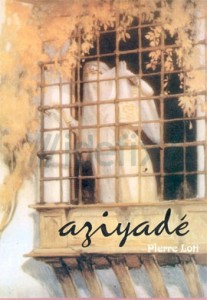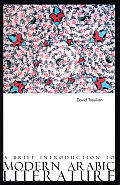The Saloniki Incident of 1876 triggered a major diplomatic crisis in Europe: a Bulgarian girl had converted to Islam, was later kidnapped by a Christian mob when she came to Saloniki and this enraged the fury of the local Muslim community. When the French and German consuls tried to calm down the tension by negotiating with the angry Muslims, they were assaulted and bludgeoned to death by the crowd. The countries that had a diplomatic presence in the Ottoman Empire protested and threatened with serious consequences. The Ottoman Government, in a constitutional crisis and amid the clouds of a coming war with Russia and with a bad press regarding the treatment of the Balkan Christians, complied and got the ringleaders arrested and executed – under the watchful eye of a contingent of French and British soldiers that had arrived on board of several warships in the port of Saloniki.
One of the French officers on board was a 26-year old Julien Viaud, who was soon enchanted by the Orient as he experienced it in Saloniki (then a multi-cultural city with only a small Greek population that was outnumbered by its Turkish, Albanian, Bulgarian and Jewish inhabitants) and later in Constantinople. He kept a diary in which he wrote down his experiences, impressions and general remarks. This diary is the basis of the book he later published anonymously under the title Aziyadé. The alleged diarist of the book is a British marine officer called Loti. It was the name under which his author came to great fame – Viaud/Loti became one of the most popular authors of his times and he had a deep impact on Marcel Proust.
Aziyadé consists of many short chapters. Loti is describing how he got acquainted with the Circassian girl Aziyadé who is married with a much older wealthy Turk who is most of the time away on business, while his harem is looking for distractions elsewhere. (Although moral was very strict and affairs of married women were very risky for them, they seem to have been a quite frequent occurrence, according to Loti). The seemingly impossible happens, Aziyadé becomes Loti’s mistress and is living with him part of the time in a house he has rented in the district of Eyoub. Together with his two loyal servants Samuel and Achmet, who become his close friends, and a cat, the lovebirds live for some time a perfectly happy life, which is permanently threatened by the possible departure of Loti, who as an officer has to follow the orders of his superiors. The diary form of the book is loosened by the letters Loti is exchanging with his sister and a few friends.
What makes the book interesting beside the romantic love story of Loti and Aziyadé is the fact that Loti who “goes local” (he learns Turkish, wears Turkish dress and spends his days like a true Ottoman), has a very attentive eye and a language to express the many interesting details he shares with us.
Observations about politics, for example how his neighbors react to the news that the Ottoman Empire has adopted a modern constitution, or about the brewing crisis with Russia, are followed by interesting insights into the domestic life of the locals or the organization of a Turkish household. We learn why the inhabitants of Constantinople had to go out with a lamp, about life in the harem, about the different religious groups, about cemeteries, and even about Aziyadé’s shoes – nothing is too small for Loti as not to use it for interesting reflections. His language – as far as I can judge from the translation – is refined and elegant and pleasant to read.
If Viaud/Loti describes a really autobiographical experience is not sure. Edmond de Goncourt, known for his malicious tongue, wrote that the mistress of the author was indeed a “mister”, and Gide and Cocteau made later similar remarks. But for the reader it doesn’t really matter.
Loti is not widely read anymore and he got labeled an “Orientalist” by Edward Said. But I found this book a very pleasant surprise. It is remarkably fresh, interesting and easy to read. You might give it a try yourself.
Pierre Loti: Aziyadé, translated by Marjorie Laurie, Amphora, Istanbul 2006
© Thomas Hübner and mytwostotinki.com, 2014. Unauthorized use and/or duplication of this material without expressed and written permission from this blog’s author and/or owner is strictly prohibited. Excerpts and links may be used, provided that full and clear credit is given to Thomas Hübner and mytwostotinki.com with appropriate and specific direction to the original content.





 Facebook
Facebook RSS
RSS Twitter
Twitter